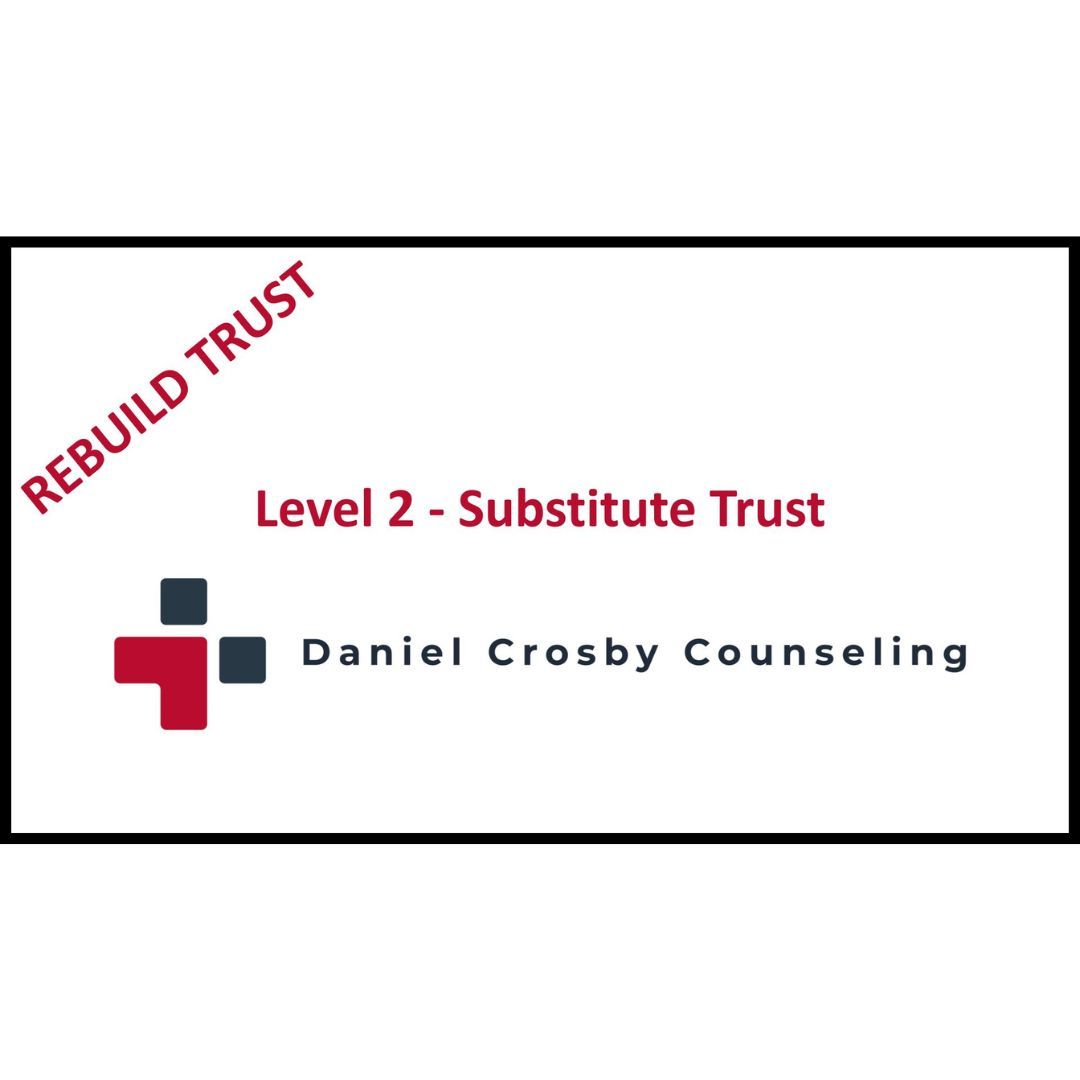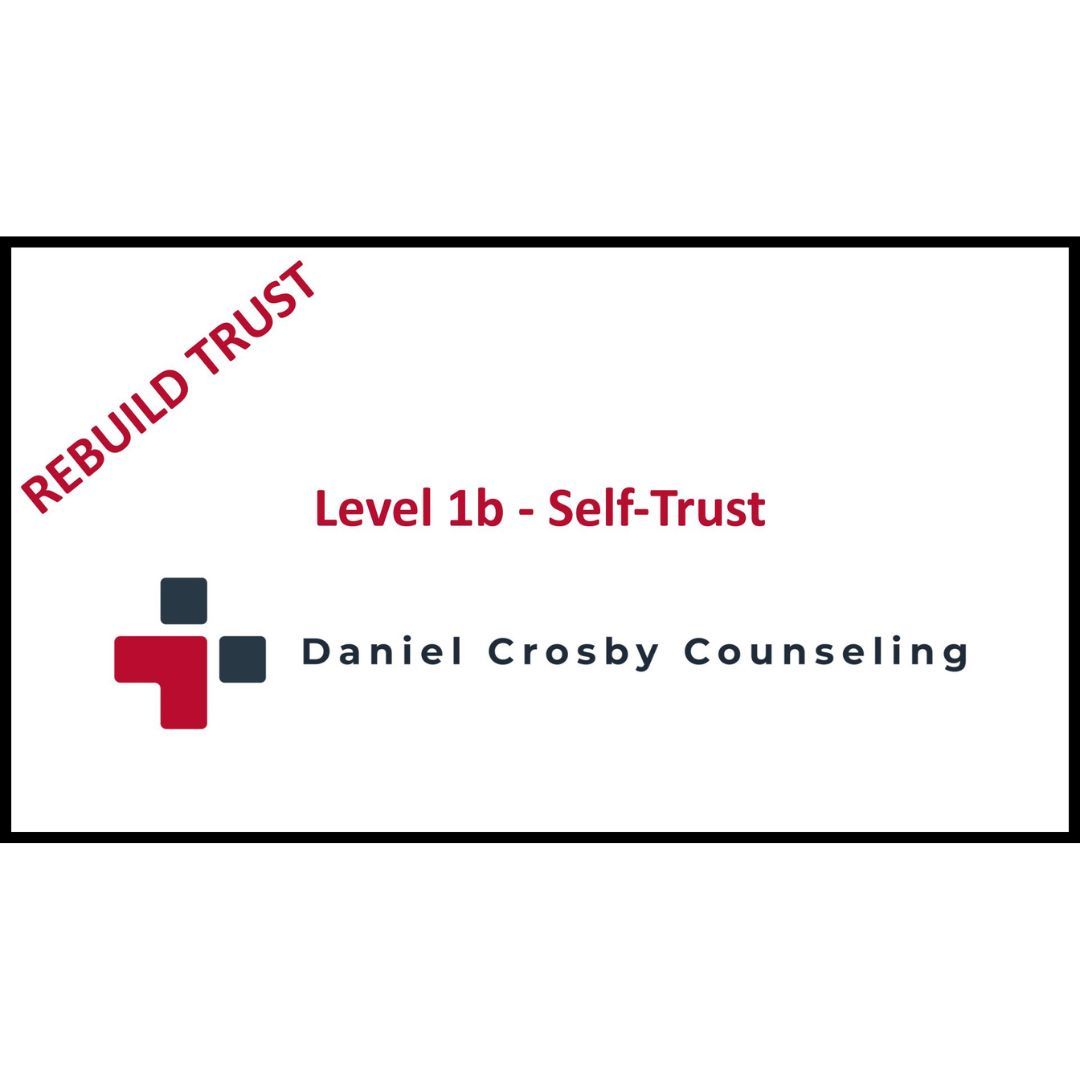60 Second Recap - Learn to Communicate Again
Daniel Crosby • September 16, 2024
5. Learn to Communicate Again
To communicate we must first feel safe. To be safety, we must know what the ground rules are and respect them.
Communication is a two-way street. It involves being a good talker and a good listener. Gary Brainerd, PhD calls these two roles the “Sender” and the “Receiver.”
Most of our communication mishaps involve when we’re both trying to Send at the same time or when someone shuts down out of pridefulness and refuses to Receive anymore.
3 Ways to Learn to Communicate Again:
1. Ask, Don’t Demand, Time for ConversationsBoth people must be ready to Send and Receive. Asking for a conversation allows the other person to decline if they aren’t in a good headspace right now.2. A Topic, Time, and PlaceTell your spouse what you’d like to address and stick to that topic. Set the time for the conversation in the future to give you both adequate time to mentally prepare. Talk in an uninterrupted place with no phones or TV on so you can focus.3. Set a Time LimitThere is often one spouse that likes talking and one that doesn’t. Setting a reasonable time limit (and sticking to it) helps avoid one spouse feeling overwhelmed and the other spouse from rambling for hours on end.
It’s Go Time:
Send me an email at the address below and I will respond with a 1 page pdf of 13 Healthy Communication Guidelines.
Every day I help hurting frazzled people by walking with them as they get back on the path toward becoming who God created them to be. Shoot me an email if there’s anything I can do to help you or someone you know.

Level 2: Substitute Trust At this stage, trust is still really shaky. Many betrayed partners say, “Show me. I need proof. I want to see your phone, your location, your actions.” Think of Substitute Trust like a cast on a broken bone. It’s not a replacement for bone itself, but it holds the bone in place while it heals. When transparency is offered voluntarily it tells the injured partner, “You don’t have to chase the truth. I’m bringing it to you.” When a hurting person has to demand transparency, it causes more distrust and paranoia. For the betrayed partner, the goal is not to eliminate fear it’s to reduce chaos. Proof can bring relief, but it’s important to notice when checking becomes a way to regulate anxiety rather than restore connection. Substitute trust should support healing, not replace it. This stage works best when both partners understand that transparency is not punishment. It protects the relationship, emotional safety, and gives us momentum to keep growing. Over time the need for constant proof should slowly decrease, not because you’re forcing yourself to stop checking, but because your nervous system no longer needs it as much. For the partner who caused the harm: Practice radical transparency. Voluntarily offer proof rather than waiting to be asked. C onsistency matters more than one-time disclosures. For the betrayed partner: Use transparency as a temporary support for safety, not a permanent way to regulate anxiety or gain certainty. Be honest about whether the proof you seek is truly helping or becoming a crutch.

Level 1b: Self-Trust After betrayal, many people don’t just lose trust in their partner, they lose trust in THEMSELVES. “Did I miss the signs?” “Was I naive?” “Can I ever trust my own judgment again?” Rebuilding self-trust is not about becoming fearful or suspicious of everyone. It’s about reconnecting with your perceptions, instincts, and internal signals and learning to respect them again. Maybe you sensed something was off but talked yourself out of it to preserve the relationship or the family. That doesn’t mean you’re bad it means you were trying to do the right thing and ended up getting bit. This level runs through EVERY stage of trust rebuilding. Even as your partner becomes more consistent, your work is to begin to listen to your inner self again. When self-trust grows, you’re no longer relying entirely on your partner’s behavior to feel safe. You begin to carry safety inside yourself again. For the partner who caused the harm: Be patient. Support your partner in regaining confidence in their own feelings and reality. Avoid defensiveness, minimizing, or anything that resembles gaslighting. For the betrayed partner: Practice trusting your instincts and emotional responses. Recall times when you listened to your gut well. Reestablish what you will and will not accept in a relationship and honor those boundaries consistently.

Level 1: Fractured Trust After a betrayal trust shattered. People in this level say, “Everything feels broken. I don’t know if I can ever trust again.” That makes sense, because betrayal doesn’t just hurt your heart; it disrupts your sense of reality and safety. But you’re still here; still considering what repair might look like. The fact that you haven’t walked away entirely says there’s a part of you that hopes healing might be possible. Level 1 is not about forgiveness or resolution. It’s not about moving on. It’s about honesty, stabilization, and finding safety again. This is also a time to avoid impulsive emotional decisions. You don’t have to decide the future today. You just have to survive today and take good care of yourself. You don’t have to know yet whether trust can be rebuilt. Right now, the only question is: Can we create enough safety for healing to begin? And that… is a powerful place to start. For the partner who caused the harm: Acknowledge the pain without defending, minimizing, or explaining it away. DO NOT SAY: “I didn’t mean to,” or “It wasn’t that bad,” or “You’re overreacting.” SAY THIS: “I see the damage. I take responsibility. I’m willing to repair.” Your tone, attitude, and consistency matter more than your words right now. For the betrayed partner: Your work is not to “get over it,” but to let the pain be real without letting it control your life. Try not to distract or numb yourself to the point that you can’t feel anything. This is where trusted friends, a good therapist, or a pastor can come alongside you to help.

